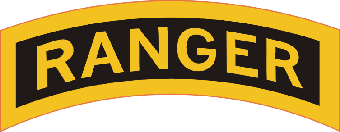
LEADERSHIP
Ranger Handbook, Ranger Training Brigade, United States Army Infantry School, Fort Benning, Georgia, February 2011
Leadership, the most essential element of combat power, gives purpose, direction, and motivation in combat. The leader balances and maximizes maneuver, firepower, and protection against the enemy. This chapter discusses how he does this by exploring the principles of leadership (Be, Know, Do); the duties, responsibilities, and actions of an effective leader; and the leader's assumption of command.
BE, KNOW, DO—THE PRINCIPLES OF LEADERSHIP
BE
- Technically and tactically proficient
- Able to accomplish to standard all tasks required for the wartime mission.
- Courageous, committed, and candid.
- A leader with integrity.
KNOW
- The four major factors of leadership and how they affect each other are–
- Led
- Leader
- Situation
- Communications
- Yourself, and the strengths and weaknesses in your character, knowledge, and skills. Seek continual self-improvement, that is, develop your strengths and work to overcome your weaknesses.
- Your Rangers, and look out for their well being by training them for the rigors of combat, taking care of their physical and safety needs, and disciplining and rewarding them.
DO
- Seek responsibility and take responsibility for your actions; exercise initiative; demonstrate resourcefulness; and take advantage of opportunities on the battlefield that will lead to you to victory; accept fair criticism, and take corrective actions for your mistakes.
- Assess situations rapidly, make sound and timely decisions, gather essential information, announce decisions in time for Rangers to react, and consider the short- and long-term effects of your decision.
- Set the example by serving as a role model for your Rangers. Set high but attainable standards; be willing do what you require of your Rangers; and share dangers and hardships with them.
- Keep your subordinates informed to help them make decisions and execute plans within your intent, encourage initiative, improve teamwork, and enhance morale.
- Develop a sense of responsibility in subordinates by teaching, challenging, and developing them. Delegate to show you trust them. This makes them want more responsibility.
- Ensure the Rangers understand the task; supervise them, and ensure they accomplish it. Rangers need to know what you expect, when and what you want them to do, and to what standard.
- Build the team by training and cross-training your Rangers until they are confident in their technical and tactical abilities.
- Develop a team spirit that motivates them to go willingly and confidently into combat.
- Know your unit's capabilities and limitations, and employ them accordingly.
Posted by regimentalrogue
at 12:01 AM EDT

